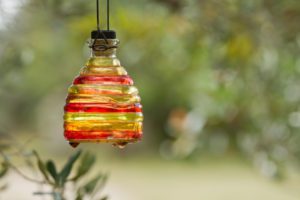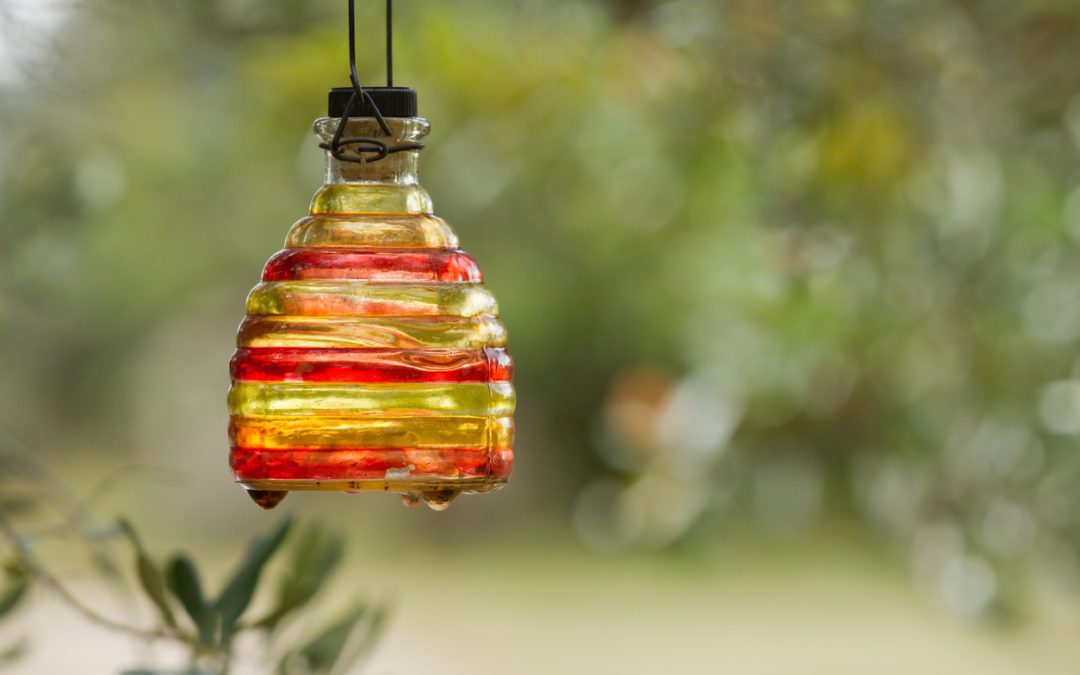Nothing puts a damper on outdoor summer fun like a colony of wasps or hornets threatening the safety of your friends and family. Wasps and hornets may be an important contributor to the environment, but they are still very dangerous if their nest is in a place where they’re likely to interact with people. Because they’re so threatening, many homeowners’ first instinct is to try a passive removal approach that doesn’t involve direct contact with the nest itself. Hornet and wasp traps are a popular method for trying to deal with a stinging insect problem, but do they really work?
How do wasp traps work?
Stinging insect traps come in many different designs from the more expensive store-bought variety to the do-it-yourself pop bottle trap, but they all have
Are wasp traps effective?
Do stinging insect traps kill wasps and hornets? Sure. Are they an effective means of eliminating an active stinging insect population? Definitely not. One of the biggest problems with wasp traps is that they attract additional insects. Any stinging insect within radius of the scent is going to be drawn to the bait, which means the wasps captured in your trap aren’t necessarily the wasps living on your property. You may actually be creating a bigger problem for yourself by attracting wasps that weren’t even there in the first place.
The other main issue with hornet and wasp traps is that they only capture workers that are out actively pursuing food to bring back to the queen and her young. As long as the queen remains safely inside the nest, she will continue to reproduce. So regardless of how many worker wasps you’re able to kill, as long as the queen is alive, the population will persevere. You trap wasps, and she creates more wasps for you to trap. Not the most effective solution, right?
When to call a professional
Trying to remove a wasp or hornet nest on your own is an incredibly dangerous endeavor and should not be attempted by homeowners. Nearly 3% of the population is allergic to stinging insects, and unlike bees who die when they sting, aggressive species like yellow jackets and bald-faced hornets are able to attack over and over again. The safest and smartest course of action is to call in an ABC Wildlife stinging insect specialist to safely remove the wasp or hornet colony from your property. Not only are our technicians trained in stinging insect behavior and control, they can offer you preventative maintenance treatments to keep wasps from being a problem in the future. Let the friendly, knowledgeable experts at ABC Wildlife help you reclaim your yard and your peace of mind.
Sharing is caring! If you’ve learned something from what you’ve read, please click one of the icons below to share this post on social media.
Karen Jesse is a wildlife writer and educator licensed by the Illinois Department of Natural Resources and the Illinois Department of Public Health in urban wildlife management and structural pest control. She enjoys hiking, telling people how cool skunks are, and opera.



